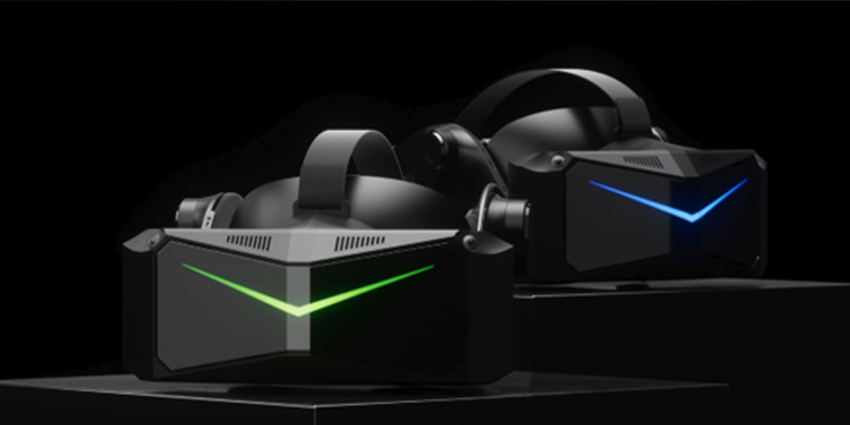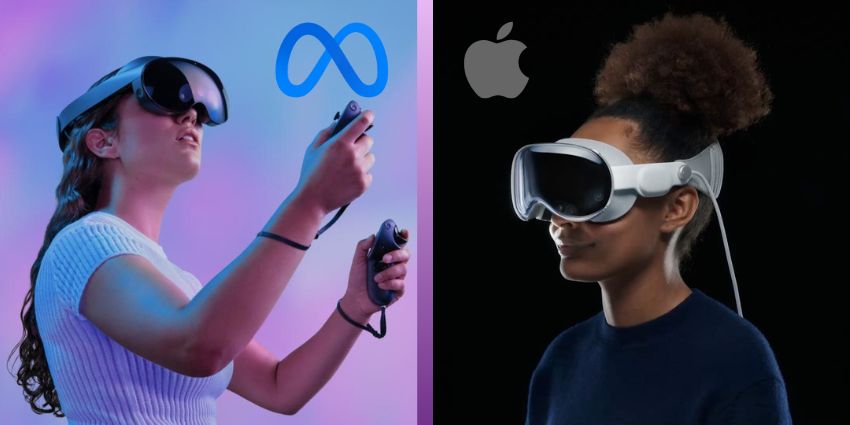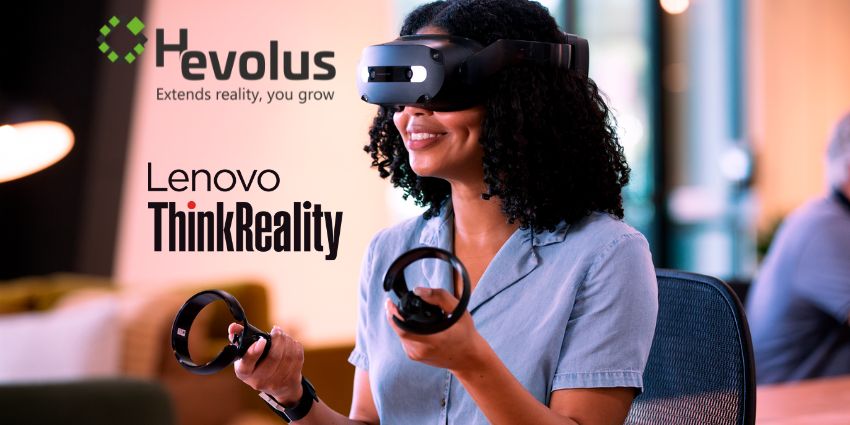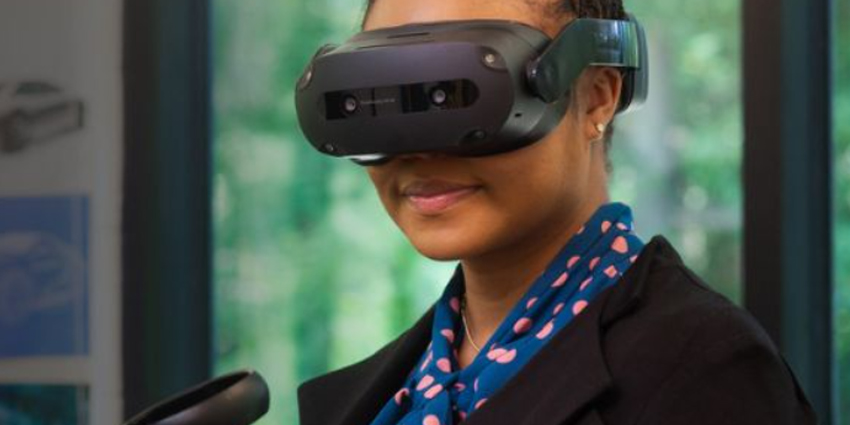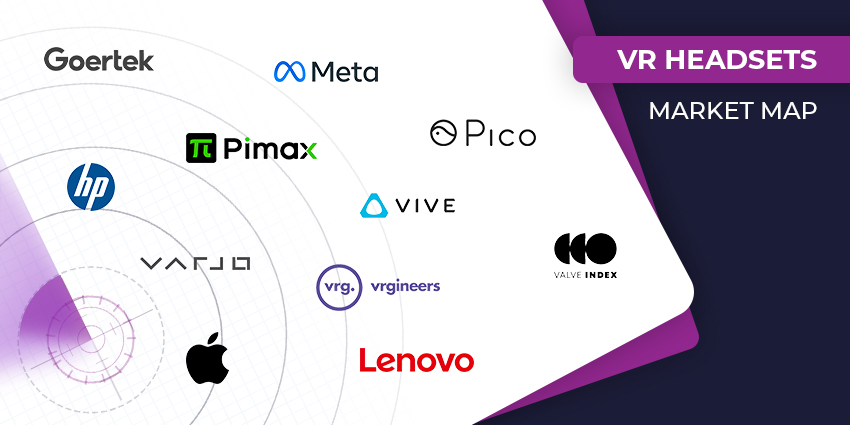December is here. The holiday period approaches and many may receive an XR headset or device as a gift ready for an immersive 2024.
With Quest headsets increasing significantly in sales following a Black Friday boost, the holiday period may provide good consumer/enterprise optics, and the space could gain a lot of capital from consumer holiday markets, with its fallout affecting the workplace XR market.
On the other hand, some of 2023’s leading XR firms are securing notable funding rounds as forecasts expect 2024 to be a monumental year for XR.
The XR market may be experiencing a quiet before the storm. Next year, Apple will debut the Vision Pro following years of hype, and Microsoft will also start rolling out its industrial Metaverse services.
2024 is ramping up to be a pivotal year for the industry. Following a tough start of 2023, readers should note some incredibly hardworking companies and individuals who supported XR through a short yet dark period, pushing our space toward a seemingly fruitful 2024.
Moreover, check out XR Today’s prediction showcase to get an extended forecast into enterprise XR in 2024.
Meta Nixes Android, iOS Messages in v60 Quest Update
According to recent reports, Meta has introduced several significant changes to its immersive Quest operating system via the v60 update. The changes are being rolled out across its product lineups, including the Meta Quest 2, Meta Quest Pro, and Meta Quest 3 VR headsets. One of the significant changes is the removal of Android and iOS notifications, which effectively separates Meta’s head-mounted displays (HMDs) from messages on smartphones and other devices.
Meta introduced the feature two years ago to prevent people from referring to their phones during gameplay. However, the Quest 2 headset cannot support this feature due to lower quality passthrough, whereas the Quest 3 and Pro can show full-colour passthrough in the field of view (FoV).
Additional features of v60 include:
- New Home Environments: Further adjustments to the Meta Horizon Home interface include new home environments such as the Blue Hill Gold Mine and Lakeside Peak.
- Common Interests: Users can meet others on the Horizon platform with similar interests to have conversations and build communities. Users can customize how they present their information to others.
- CPU-GPU Overclocking: Meta will allow users to clock their central and graphics processing units (CPU/GPU) when operating mixed reality (MR) applications, improving the quality of app experiences and increasing the response times for user interfaces (UI), boosting CPUs by up to 34 per cent and GPUs by around 19 per cent compared to default settings.
- Cloud Computing for Boundaries: Finally, the Meta Quest family will offer cloud computing to enhance how devices remember boundaries.
Industrial Metaverse, GenAI to Trend in 2024
Deloitte, one of the Big Four consultancy firms, has identified the industrial metaverse and spatial computing as some of the top tech trends for 2024. In its 15th Tech Trends report, Deloitte highlighted that the metaverse will soon become a full-blown enterprise tool.
Deloitte’s findings indicate that revenues from the industrial metaverse are projected to reach up to $100 billion by 2030, outpacing the consumer and enterprise segments. The report also noted that early adopters and consumers of emerging technologies will likely see their creations reemerge as enterprise productivity solutions.
According to Deloitte, the industrial metaverse involves blending real-world physics with spatial data and AI to replicate real-life processes. The report cited examples of workers at a facility using remote guidance and engineers prototyping products with photorealistic digital twins. Deloitte highlighted that organizations usually adopt a “simulation first” strategy before building facilities.
The report further noted that increased investments in emerging technologies like digital twins, 5G enablement, cloud, edge, and AI have driven significant value and addressed long-standing pain points. A recent Deloitte study revealed that 92 per cent of manufacturing executives had experimented with or implemented one or more metaverse-based use cases, with an average of six use cases. Respondents also expected a 12 to 14 per cent improvement in sales, throughput, and quality from industrial metaverse use case investments in the coming years.
Process simulation and digital twins were also identified as the most common use cases and were considered a “lifesaver” where operations were complex, pricey, and exact.
Snap Earns $20m Grant
The state of California has granted Snap Inc. $20 million in the form of tax credit incentives and grants.
The funding will help the company expand its offices across the globe and increase its manufacturing capacity for AR smart glasses.
According to the Los Angeles Business Journal, more than 12,000 entities have benefited from the programme’s incentives, creating almost 165,000 jobs since its inception in 2013.
Under the agreement, Snap will use the funds to develop its AR devices.
The social media company had previously introduced its Spectacles product, a pair of smart glasses with attached cameras that could record videos and upload the footage to its platform. The company is expected to receive the funds in 2025 to boost its apparently dormant hardware portfolio.
Virtuleap Scores AI and $2.5 Million
Virtuleap has recently acquired roughly $2.5 million to integrate AI into its XR product portfolio. The company has previously worked with firms such as Penumbra and HP. GED Ventures Portugal led the $2.5 million investment round, and according to 1Bibi Sattar Marques, a Partner and Member of the Board of Directors at GED Ventures Portugal, the newly acquired capital “reflects the company’s strategic approach of investing in technology that positively impacts people’s lives, particularly their health.”
Marques further explained that by combining technology and well-being, Virtuleap is committed to paving the way for a new era in mental health that is accessible to everyone.
The funding will enable Virtuleap to integrate its new AI service into its flagship EnhanceVR product, providing immersive cognitive training solutions that cover seven core categories, including memory, attention, information processing, mental flexibility, problem-solving, motor control, and spatial orientation.
The AI integration will allow users to evaluate training assessments via collected data, which will provide critical clinical findings. Amir Bozorgzadeh, the CEO and Co-Founder of Virtuleap, noted that the funding round will enable his firm to “ramp up development and commercialization of our frontier VR cognitive solutions” alongside the recent AI inclusion. Bozorgzadeh also pointed out that the EnhanceVR AI integration comes “at a time in which an impending ‘Cognition Crisis’ is well underway.”


